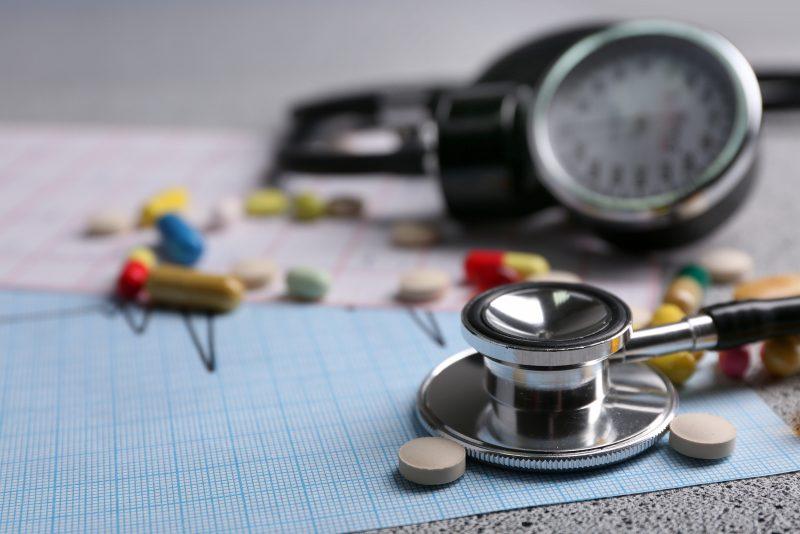When it comes to serious accidents, the home is one of the most hazardous places. As any parent knows, small children put everything in their mouths. It’s understandable since it allows them to explore shape and texture as well as taste. And since they have no way of knowing which drinks or edibles are dangerous — or even that some of them may be — they’ll swallow blood pressure medication as eagerly as they will orange juice.
Around 64,000 children needed emergency room treatment following accidental poisoning from medicines, according to statistics gathered for 2012. That works out to one every eight minutes. The US Poison Control Center gets even more calls, amounting to one every minute.
The Changing Population And Staying Safe
Just as many accidentally taken medicines belong to grandparents as parents, reflecting today’s changing family dynamics. Since 2005, the number of grandparents who live under the same roof as their grandchildren has risen by 23%. And with more parents working, around 8% of grandparents regularly help with childcare.
With well over half of grandparents taking prescription medication on a daily basis, the risk to children is greater now than it has been in previous generations. It’s easy to become complacent about medication when it is a daily part of your life, forgetting how quickly and easily it can fall into curious little hands.
We tend to keep our medicine where it’s convenient, such as on the kitchen counter or an easily reached shelf. If we have trouble opening childproof containers because we have arthritis or other conditions affecting dexterity, we’ll decant meds into containers we can open easily. And lots of us keep medicines on a night stand so we don’t forget it, or so it’s to hand if it’s needed in the night.
Signs and Symptoms of Accidental Poisoning
Adult medication often comes with overdose warnings even for the adults it’s prescribed for. Adult doses in small bodies can have rapid, devastating results. In many instances, it only takes one swallow or pill before the damage is done.
These are some of the general symptoms of accidental poisoning to look out for:
- High temperature
- Drowsiness or feeling dizzy
- Being irritable or having a headache
- Blurred or double vision
- Excessive dribbling
- Rashes
- Breathing difficulty
- Falling unconscious
Some items, such as blood pressure medication, are especially dangerous if swallowed by children. The list includes over the counter meds as well as those prescribed:
High blood pressure medication
High blood pressure medication can be especially dangerous to small children and toddlers. It can cause seriously low heart rates, lethargy, coma and even death. Blood pressure medication is so strong that even just 6ml (that’s just over a teaspoon) can lead to coma. Falling under the blood pressure umbrella are also nasal sprays and eye drops. Blood pressure patches are sometimes discarded in the regular trash, but even after they’ve been used, the remaining active ingredients can be sufficiently strong to seriously damage young children.
Heart Medications
Heart Medications can induce low blood pressure in children, and can lead to shock and a slow heart rate.
Muscle rubs
Muscle rubs may seem harmless to adults but in children they can have fast acting consequences. If camphor is swallowed, it can cause seizures in kids within just 10 or 20 minutes.
Pain meds
Pain meds frequently prescribed include those containing oxycodone, methadone or hydrocodone. In children they cause sleepiness and lethargy and if not treated can lead them to stop breathing.
Oil of Wintergreen and Aspirin
Oil of Wintergreen and Aspirin are often taken to relieve muscle pains or ward off heart attacks, with oil of wintergreen used as flavoring. Most households have a supply of aspirin since it’s a common painkiller. In children, it can cause nausea, vomiting or seizure that can lead to coma and even be fatal. Oil of wintergreen is especially dangerous because it smells pleasant. Put into perspective, one teaspoon of oil of wintergreen is equal to around 90 baby aspirins.
Antidepressant
Antidepressant drugs are the second biggest risk to children after pain meds. Symptoms include seizures and irregular heart beats. Just one or two pills are enough to cause serious problems.
What to Do If a Child Swallows Your Meds
As soon as you realize a child has accidentally swallowed medication you should call 911 or the Poison Control Centre, and be prepared to take the child to the emergency room immediately. Take the medicine bottle with you so there’s no misunderstanding of what was swallowed. Looking at what’s left in the bottle may also allow for an estimation of how much the child swallowed. You shouldn’t try to make the child sick.
At the emergency room, there are reversal agents or antidotes available to help the child recover, but fast action is needed. Accidents happen even with the best care, so keep emergency numbers handy and try to stay vigilant.









